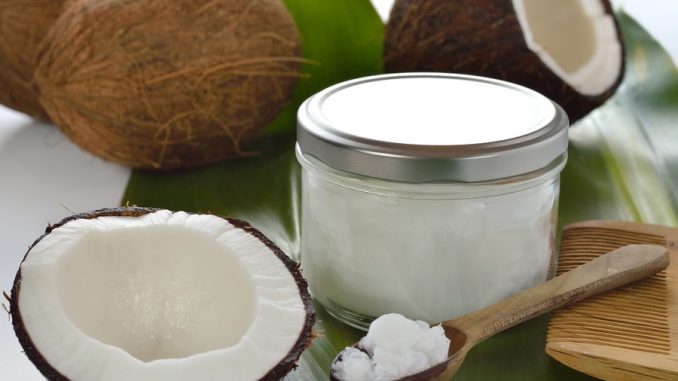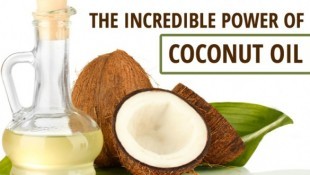
Since the 1960’s food manufacturers have been persuading consumers to buy their margarines and hydrogenated oils.
In order to persuade people to do that, they had to discredit the products people had already been using to prepare their food.

BYPASS THE CENSORS
Sign up to get unfiltered news delivered straight to your inbox.
You can unsubscribe any time. By subscribing you agree to our Terms of Use
Latest Video
As the marketing campaign for their synthetic products began, coconut oil along with other products were portrayed as artery-clogging and cholesterol-raising substances. People were told that these products contained too much saturated fat and contributed to heart attacks.
Today, in the midst of an obesity, heart disease, diabetes, and cancer explosion, scientists discover that it is not healthy fats found in coconut oil and other natural products that are bad for you. In fact it is the stuff that the food manufacturers have been pushing on their consumers for the past thirty years. The trans-fats contained in the manufactured “fake foods” are dangerous to your entire body. When put under the microsope it is the high fat, high sugar, and high carb diets that are found guilty.
This is part of a very informative article by Ty Bollinger at thetruthaboutcancer :
The Unique Coconut Oil Benefits
With the advancement of modern technology and breakthroughs in science, numerous studies in the past decade have proven coconut oil to be a “good” saturated fat and incredibly healthy.
Pure coconut oil is rich in lauric acid, a medium-chain fatty acid that is converted to monolaurin by your body. In fact, 50% of coconut oil is lauric acid, a compound usually found in human breast milk, which makes it one of the best food sources of this nutrient available. Lauric acid is beneficial in deterring parasites, bacteria, fungi, yeasts, and viruses.
Coconut oil also consists of 86.5% saturated fatty acids, 5.8% monounsaturated fatty acids, and 0% trans-fat. It is comprised of medium-chain fatty acids (MCFAs), contrary to vegetable or seed oils consisting of long-chain fatty acids (LCFAs). LCFAs are stored in the body as LDL cholesterol, contribute to hardening of the arteries, and strain the pancreas and liver.
MCFAs support the immune system with its antimicrobial properties. They are easily digested and converted to energy. Studies indicate that MCFAs help increase feelings of fullness and lead to a reduction in calorie intake when compared to the same amount of calories from other fats. When MCFAs are metabolized, ketone bodies are created in the liver. Ketone bodies have been shown to have a strong appetite reducing effect. Coupled with its stimulatory effect on metabolism, it’s easy to see why coconut oil makes it easier to maintain a healthy weight.
In the 1930s, Dr. Weston Price, a dentist by profession, traveled throughout the South Pacific to examine traditional diets and their effects on dental hygiene and overall health. He observed that people whose diets contain high amounts of coconut products were healthy and trim. Despite their high fat intake, there was no existence of heart disease.
Another study in the 1940s found that when farmers used coconut oil as a fattening substance for their livestock, the animals became leaner instead. The high levels of MCFA in coconut oil maintain the thyroid gland’s optimal control of metabolism, ultimately resulting in weight loss.
In the past decades, society has been misinformed to believe that eliminating saturated fats from their diet was necessary for healthy living. We’ve been told that shunning these fats would prevent the occurrence of heart disease, diabetes, and cancer.
Raw, organic, virgin coconut oil is considered a superfood because it helps increase cardiovascular function, heals damaged cells that can lead to cancer and other disease, and cleanses the body.
People worldwide are now realizing the numerous coconut oil benefits. The truth is, it provides us with crucial nutrients not found anywhere else and is indeed a healthier choice for total body wellness.



